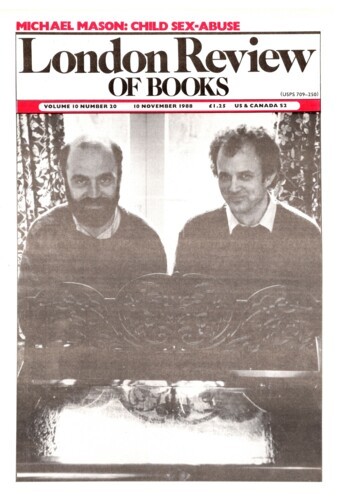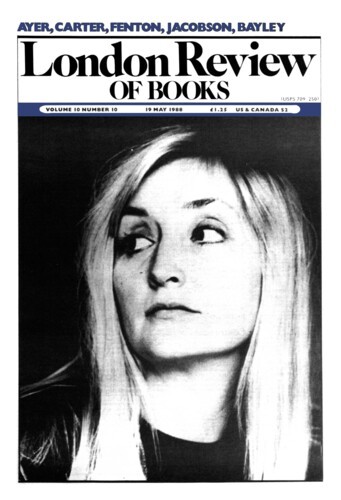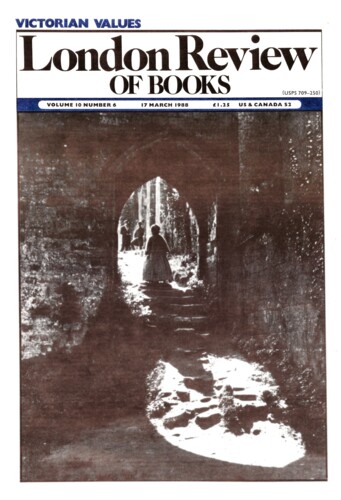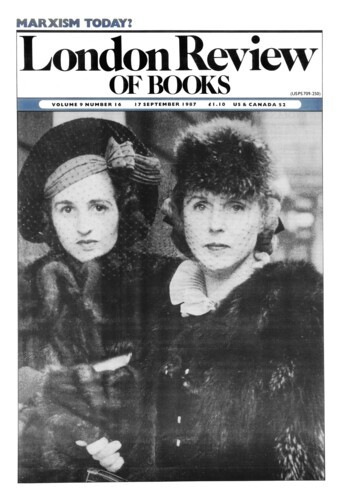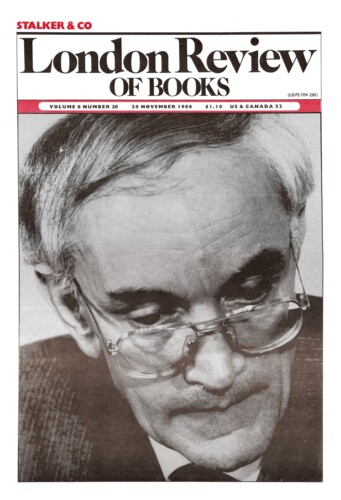Stewarts on the dole
Rosalind Mitchison, 10 November 1988
Recent anniversaries for Scotland have been encouraging the simplified version of its history that obtains in most English minds. Two topics are sufficiently dramatic to break through cultural isolationism: the reign of Mary Queen of Scots and the Jacobite risings. The more sophisticated English absorbers of history may also entertain an uneasy recollection that the Scots had something to do with the English Civil Wars, and may even have an impression of outbreaks of Presbyterian intransigence in the 19th century: but for most people in England Scottish history means Mary and Prince Charles Edward, whose deaths, one of which was directly caused by England, are associated with ’87 and ’88. This setting in time is unfair on those of us who try to show that Scottish society had its own interesting line of development, a topic which neither of these known figures paid any attention to. A theme which unites the central figures of these anniversaries is their marked lack of interest in Scotland.
